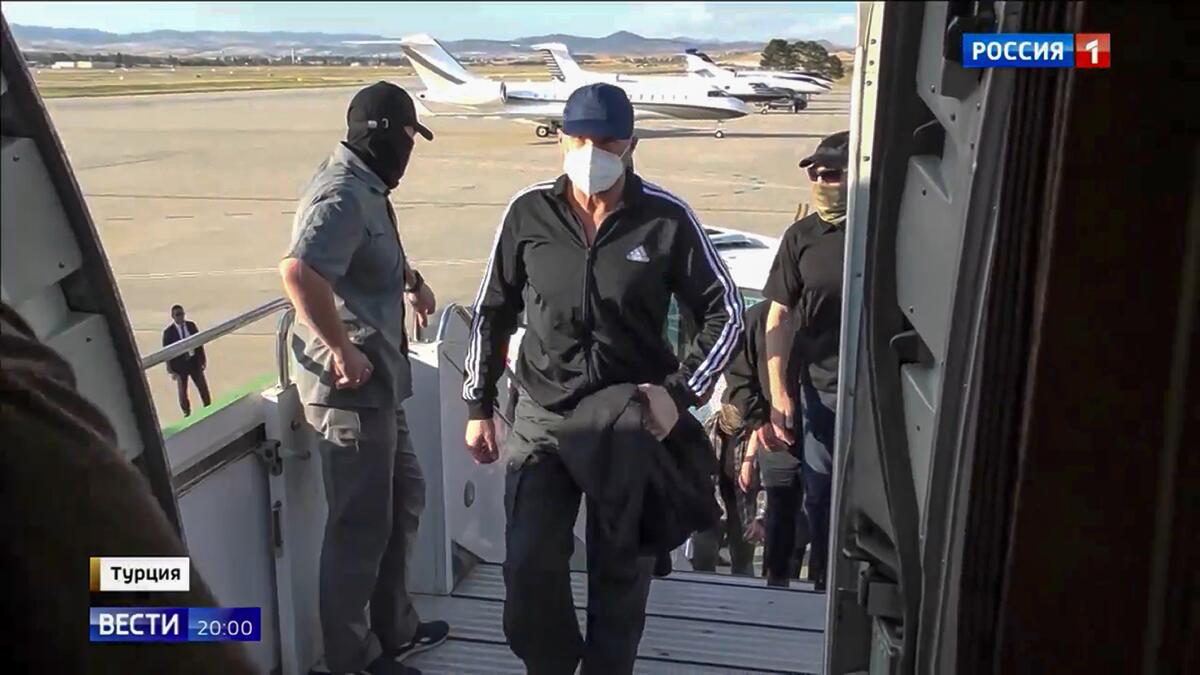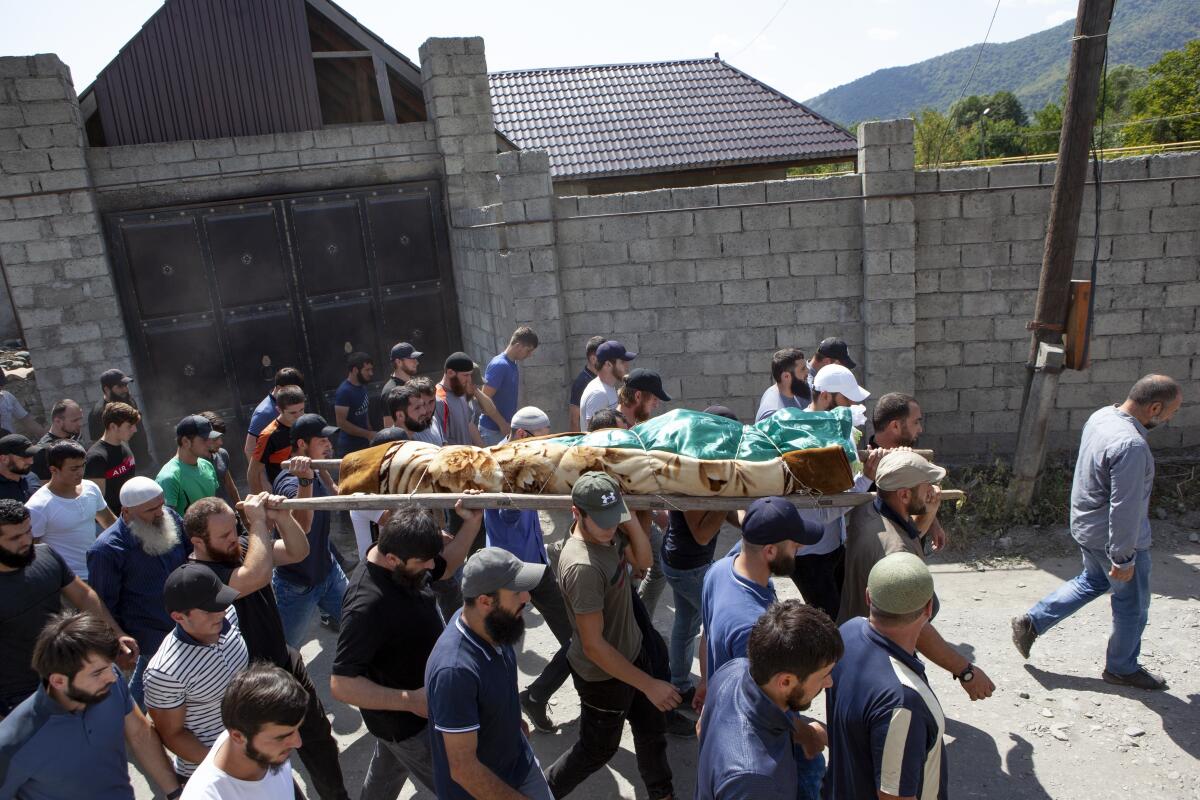The Russian hit man at the center of landmark prisoner swap

BERLIN — The killing was quick and brutal. But as the Russian hit man fled the scene — a wooded pathway in a park in the middle of Berlin — he bungled his getaway.
The 2019 slaying was the opening act in a Cold War-style drama that culminated Thursday in the biggest East-West prisoner swap since the Soviet era — an elaborate, multinational accord that freed a young U.S. journalist, a former U.S. Marine and a prominent Russian American political opponent of Russian President Vladimir Putin, along with 21 others
At the heart of the deal was Vadim Krasikov, the man convicted in the Berlin killing.
Journalist Evan Gershkovich, former Marine Paul Whelan and journalist Alsu Kurmasheva are freed from Russian detention in a prisoner swap involving 24 detainees.
In 2021, a German court sentenced him to life in prison for the fatal shooting of an exiled ethnic Chechen named Zelimkhan Khangoshvili, and determined he had probably acted at the behest of the Federal Security Service, or FSB, the main Russian spy agency, which answers to none other than Putin himself.
At the time, the audacious execution-style slaying sent ripples of unease across the continent for its unmistakable message that the Russian leader’s foes were not safe anywhere — not even in a highly public place, in broad daylight, in a major European capital.
Almost from the beginning, Putin signaled, if obliquely, that he wanted Krasikov back. But it took years for that wish to come to fruition.

In the meantime, the Kremlin staunchly denied involvement in the killing, and the case triggered mutual diplomatic expulsions by Russia and Germany.
The killing captivated Germany. It was known colloquially as the “Tiergarten murder” — for its venue, the Kleiner Tiergarten park, a smaller cousin of the sprawling, historic green swath that cuts through central Berlin, a short distance from the German Parliament complex and chancellery.
Authorities determined that the killer had entered the country using an alias, and even in court, Krasikov claimed he was really a construction engineer named Vadim Sokolov. Calling himself a tourist, he had seemingly innocuous sightseeing photos on his cellphone.
But on the day of the assassination, his spycraft apparently failed him. Witnesses reported that he acted with brazen assurance, approaching the victim from behind, then escaping on a bicycle. Two teenagers spotted him tossing the bike into the river Spree, along with the murder weapon and a wig, all of which were recovered by police divers.
Krasikov was arrested the same day.
In Germany, a typical maximum sentence for murder is 15 years, but the judge said a harsher sentence was warranted. Krasikov, the prosecution declared, had carried out the “liquidation” of an opponent in a state-sponsored act.
Ukrainians displaced by war find new purpose in Shakespeare’s play of love, loss and madness, bringing their blood-red version to the bard’s hometown.
It was not only German authorities who uncovered the most damning details about the killer’s background. A comprehensive joint investigation by the open-source group Bellingcat and its partners, the German newsmagazine Der Spiegel and another publication, the Insider, also found the Kazakhstan-born Krasikov’s FSB links, charted his movements using phone metadata and unearthed photos showing a distinctive tattoo to definitively establish his identify.
Because of the gravity of the crime and the affront to its sovereignty that the case represented, Germany long balked at the notion of Krasikov, who is now in his late 50s, being part of any swap.
And the discussions stayed shrouded. As recently as June, the government of Chancellor Olaf Scholz publicly declined to discuss any potential negotiations involving a prisoner in German custody.
But as it became clear that no swap would be possible without including Krasikov’s release, Germany’s resistance eroded, and the pace of negotiations quickened.
On Thursday, along with the others in the swap, Krasikov walked free. On the red-carpeted tarmac in Moscow, Putin embraced him.
More to Read
Sign up for Essential California
The most important California stories and recommendations in your inbox every morning.
You may occasionally receive promotional content from the Los Angeles Times.












